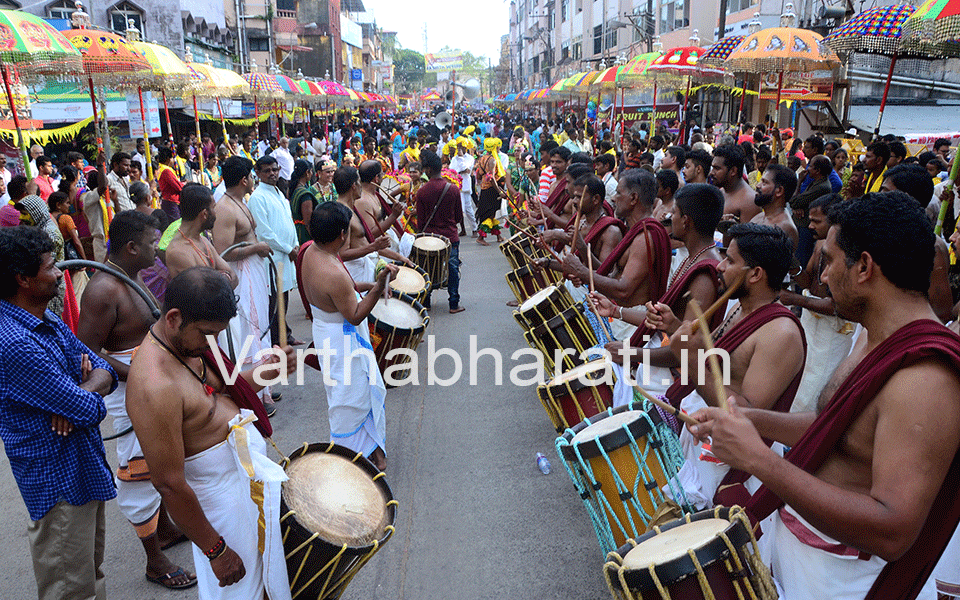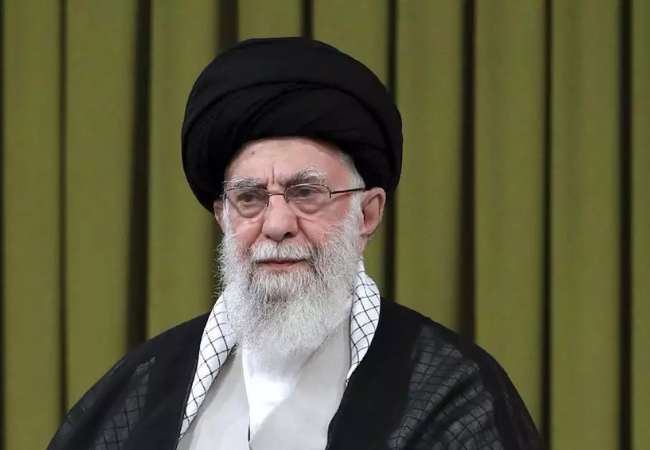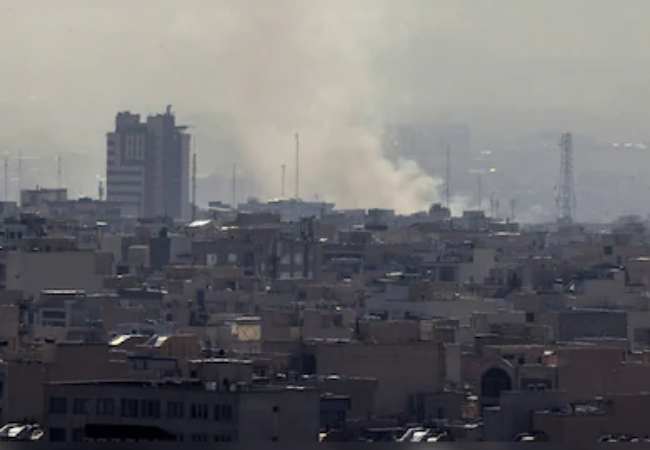Mangaluru, Oct 19: The 'Shobha Yatra' (procession) marking the culmination of this year's Mangaluru Dasara celebrations began from the Kudroli Gokarnanatheshwara temple here Friday evening.
The grand procession, in which thousands of devotees are taking part, began at the temple complex and will conclude at the same venue with the immersion of the idols at the Pushkarini pond in the temple premises early Saturday.
Idols of Navadurga, goddess Sharada Devi and Lord Ganesha are being carried in the procession by the crowd in a festive mood.
The procession began with rituals held at the temple in the presence of veteran Congress leader and organiser of the event B Janardhana Poojary and other office-bearers of the temple.
Over 70 tableaux, music bands, decorative umbrellas and performance of folk artiste groups from across the state are the main attractions of the procession.
The city had been illuminated with colourful lamps for the past nine days as part of the celebrations.
Chief Minister H.D. Kumaraswamy had visited the Kudroli temple on October 14 to formally inaugurate the celebrations.
The duration of the procession through the main streets of the city has been brought down to 12 hours this year instead of 16 hours.
Police have made elaborate security arrangements in the city to check any untoward incident during the procession.





Let the Truth be known. If you read VB and like VB, please be a VB Supporter and Help us deliver the Truth to one and all.
Chikkaballapur: As tensions escalate in West Asia, the small town of Alipur in Gauribidanur taluk has drawn attention due to its decades-long religious and cultural ties with Iran, Prajavani reported.
Though geographically far from the conflict zone, residents of Alipur, a town panchayat with a population of around 25,000 Shia Muslims, closely follow developments in Iran. The town is regarded as one of the largest Shia Muslim settlements in South India, and many families here maintain deep spiritual and educational connections with the Islamic Republic.
Over the years, Shia Muslims from Alipur have travelled to Iran for religious studies, pilgrimage, and higher education. The influence of Iranian religious leadership is visible in the town’s institutions as well. A hospital in the village is named after Ayatollah Ali Khamenei’s spiritual lineage, and a large portrait of Ayatollah Imam Khamenei adorns the building.
Alipur has also been visited by several prominent personalities from India and abroad. Former Prime Minister H.D. Deve Gowda, Union Minister H.D. Kumaraswamy, and senior Congress leaders have attended events in the town. In 2018, former Thai Deputy Prime Minister Dr. Sonthi Bunyaratglin took part in a Unity Day celebration at the village’s Nobel School. WWE wrestler ‘The Great Khali’ visited the town in 2021 for a private event, drawing large crowds.
Many residents have business and trade links with countries in West Asia, including Iran and Gulf nations. Some families are involved in the gemstone trade and overseas commerce. According to officials, more than 120 people from Alipur are currently residing in Iran.
In view of the prevailing war situation in the Middle East, the Chikkaballapur district administration has set up a helpline to assist residents stranded abroad. District Collector Prabhu has urged families to provide details such as the name, age, passport number, contact information, and current location of relatives overseas. Information can be shared through the District Disaster Management Centre helpline number 08156-277002 or via WhatsApp at 9591178093 and 9845531026.



_vb_58.jpeg)

_vb_33.jpeg)